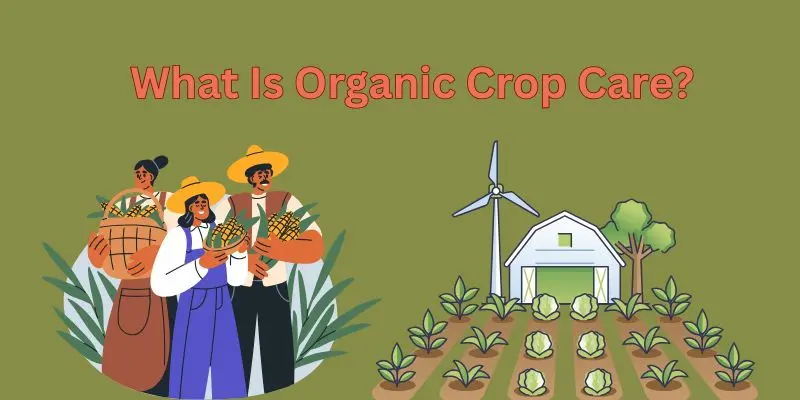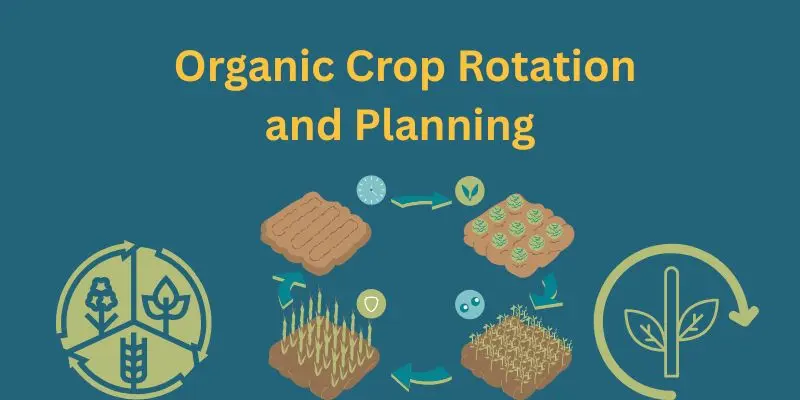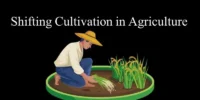Organic Crop Care .Grow Pure, Harvest with Heart
Published: 15 May 2025
What if the way you care for your crops could heal more than just your land? What if your farming practices could restore the soil, protect your health, and nourish your community—all without relying on synthetic chemicals? As more farmers and growers face the long-term effects of chemical-intensive agriculture, the question becomes urgent: is there a better way to grow? Organic crop care offers an answer rooted in nature, responsibility, and lasting abundance.
So, guys, without wasting time, let’s jump into the article to learn the Organic Crop Care – Grow Pure, Harvest with Heart
2. What Is Organic Crop Care?
- A holistic farming approach that eliminates synthetic chemicals and focuses on natural soil health and ecosystem balance.
- Involves practices that feed the soil, not just the plant, and aim for long-term fertility and crop resilience.
- Encourages biodiversity, closed-loop nutrient cycles, and minimal environmental disruption.

3. Why Organic Farming Matters More Than Ever
- Climate change, soil degradation, and health concerns are pushing farmers to rethink their practices.
- Organic methods help restore soil life, reduce carbon footprint, and produce safer, healthier food.
- Emotional Hook: “The way you care for your crops today shapes the world your children will harvest tomorrow.”
4. Key Principles of Organic Crop Care
- Feed the Soil First: Healthy soil = healthy crops. Use compost, manure, green manures, and cover crops.
- Promote Biodiversity: Rotate crops, intercrop, and encourage beneficial insects.
- Avoid Synthetic Inputs: No chemical fertilizers, pesticides, or genetically modified organisms (GMOs).
- Use Natural Pest & Disease Control: Neem oil, garlic spray, trap cropping, and companion planting.
- Preserve Soil and Water: Mulching, minimal tillage, and water-efficient methods.
5. Building Healthy Soil Organically
- Use compost, vermicompost, farmyard manure, and biofertilizers to enrich soil.
- Encourage microbial life through crop residues and minimal disturbance.
- Maintain pH balance and structure naturally with lime, gypsum, or organic matter.
- Emotional Hook: “Soil is not dirt—it’s life beneath your feet. Feed it like family.”
6. Natural Pest and Disease Management
- Identify problems early through regular field scouting and monitoring.
- Use botanical extracts (e.g., neem, chili, ginger), sticky traps, and predatory insects.
- Strengthen plant immunity with compost tea, fermented plant juices, and healthy root zones.
7. Organic Crop Rotation and Planning
- Rotate heavy feeders with nitrogen-fixing plants (e.g., legumes).
- Reduce pest buildup by alternating plant families across seasons.
- Plan calendars for cover cropping, composting, and rest periods.

8. Challenges of Organic Crop Care (And How to Overcome Them)
- Slower results in the beginning as soil recovers from chemical dependence.
- Higher labor input for weeding, composting, and pest control.
- Certification and market access barriers for small-scale farmers.
- Solutions include community knowledge sharing, gradual transition plans, and organic cooperatives.
9. Tools and Resources for Organic Growers
- Organic certification guidelines (e.g., USDA Organic, India’s NPOP, EU Organic).
- Mobile apps for organic practices and crop rotation (e.g., AgriApp, Kisan Diary).
- Local extension services and organic farming communities or networks.
10. Real-Life Success Stories
- Farmers who shifted to organic report higher long-term yields, better soil, and stronger market demand.
- One Indian farmer saw a 60% reduction in input costs over three years after going chemical-free.
- Organic vegetable growers in Kenya improved income by exporting through cooperative models.
- Emotional Hook: “They said it couldn’t be done—until healthy soil proved them wrong.”
FAQs about Organic Crop Care – Grow Pure, Harvest with Heart
Here are some of the most frequently asked questions about the advantages and disadvantages of the Internet
Organic crop care is a natural approach to farming that avoids synthetic chemicals. It focuses on soil health, biodiversity, and long-term sustainability.
It enriches the soil with compost, manure, and cover crops. This builds structure, microbial life, and long-term fertility.
Natural methods like neem oil, trap crops, and beneficial insects are used. These control pests without harming the environment or beneficial organisms.
While initial costs can be higher, long-term savings on chemicals and improved soil health increase profitability over time.
With proper planning and regenerative techniques, organic farming can produce competitive yields. It also offers safer, healthier food and soil resilience.
Final Thoughts
- Organic crop care is more than a set of techniques—it’s a promise to farm with integrity, to honor the earth, and to grow with purpose. When you choose to nurture your soil naturally, protect your plants without chemicals, and build ecosystems instead of breaking them, you create more than just food. You create trust, resilience, and a future that is healthier for generations to come. Because when you grow with heart, every harvest carries meaning far beyond the field.

- Be Respectful
- Stay Relevant
- Stay Positive
- True Feedback
- Encourage Discussion
- Avoid Spamming
- No Fake News
- Don't Copy-Paste
- No Personal Attacks

- Be Respectful
- Stay Relevant
- Stay Positive
- True Feedback
- Encourage Discussion
- Avoid Spamming
- No Fake News
- Don't Copy-Paste
- No Personal Attacks





